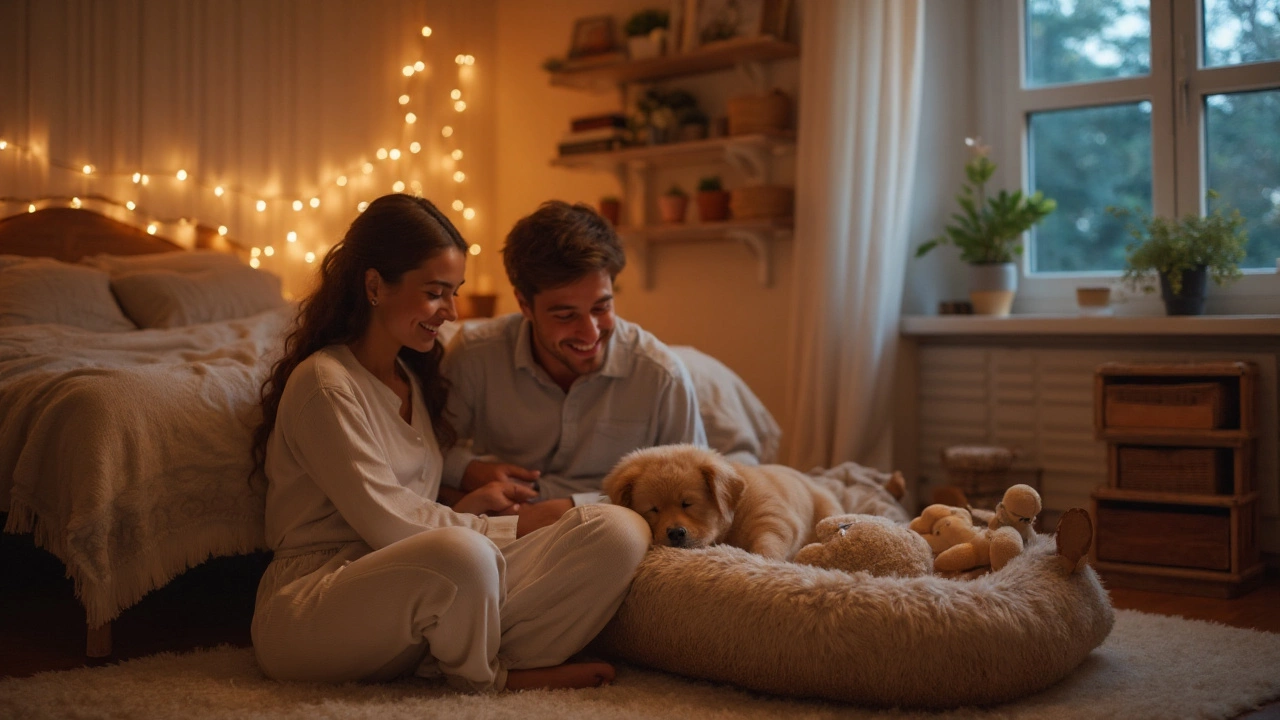Sleep Routine for Dogs: Simple Tips for Better Nighttime Rest
If your dog wakes up grumpy or barks at night, chances are the sleep routine needs a fix. Dogs thrive on consistency, just like us. A steady bedtime, a calm space, and a few easy habits can turn restless nights into smooth snoozes for both pet and owner.
Set a Consistent Bedtime Schedule
Pick a time that works for your family and stick to it, even on weekends. Dogs have an internal clock and will learn to expect sleep when you cue it. A short pre‑bed ritual—like a quick walk, a sip of water, and a gentle pet—signals that it’s wind‑down time.
For puppies, aim for a bedtime between 7 pm and 9 pm. They need more naps, so a later night can lead to overtiredness and sudden bursts of energy. Adult dogs usually settle down after a brief evening walk, so plan the walk about 30 minutes before the chosen bedtime.
Create a Calm Nighttime Environment
Dim the lights an hour before sleep. A softer room encourages melatonin production, helping dogs relax. If you’re unsure whether to leave a night‑light on, test both ways. Some dogs feel safer with a faint glow, while others prefer total darkness to reduce anxiety.
Keep the sleeping area comfy: a sturdy crate or a quiet corner with a soft bed works well. Avoid placing the bed near loud appliances or windows that let in street noise. A consistent scent, like a lightly scented blanket, can also act as a cue for sleep.
Food timing matters too. Feed your dog a few hours before bed, not right before sleeping. A full stomach can cause indigestion and wake‑ups, while an empty stomach may lead to restlessness. A small, healthy snack like a dental chew can keep them satisfied without overloading the gut.
If your dog likes being petted while dozing, do it gently and stop before they fully fall asleep. Light stroking can be soothing, but too much contact may keep them alert. Watch their body language: relaxed muscles and slow breathing mean they’re ready for deep sleep.
When night‑time barking or pacing starts, check for triggers. A bathroom break, a stray noise, or a new pet in the house can spark anxiety. Address the cause first, then reinforce calm behavior with a quiet “good night” cue and a brief pause before returning to the routine.
Remember, changes take a week or two to stick. Be patient, stay consistent, and reward calm behavior with praise or a treat. Soon your dog will associate the bedtime cue with a safe, restful night, and you’ll both enjoy quieter evenings.
Posted By Bryndle Redding On 4 Aug 2025 Comments (0)
Should You Let Your Puppy Sleep in Your Bedroom? Puppy Sleep Training for New Dog Owners
New to puppy parenting? Find out if sharing your room with a puppy helps with sleep, bonding, anxiety, and training. Real tips for new owners in New Zealand.
READ MORE